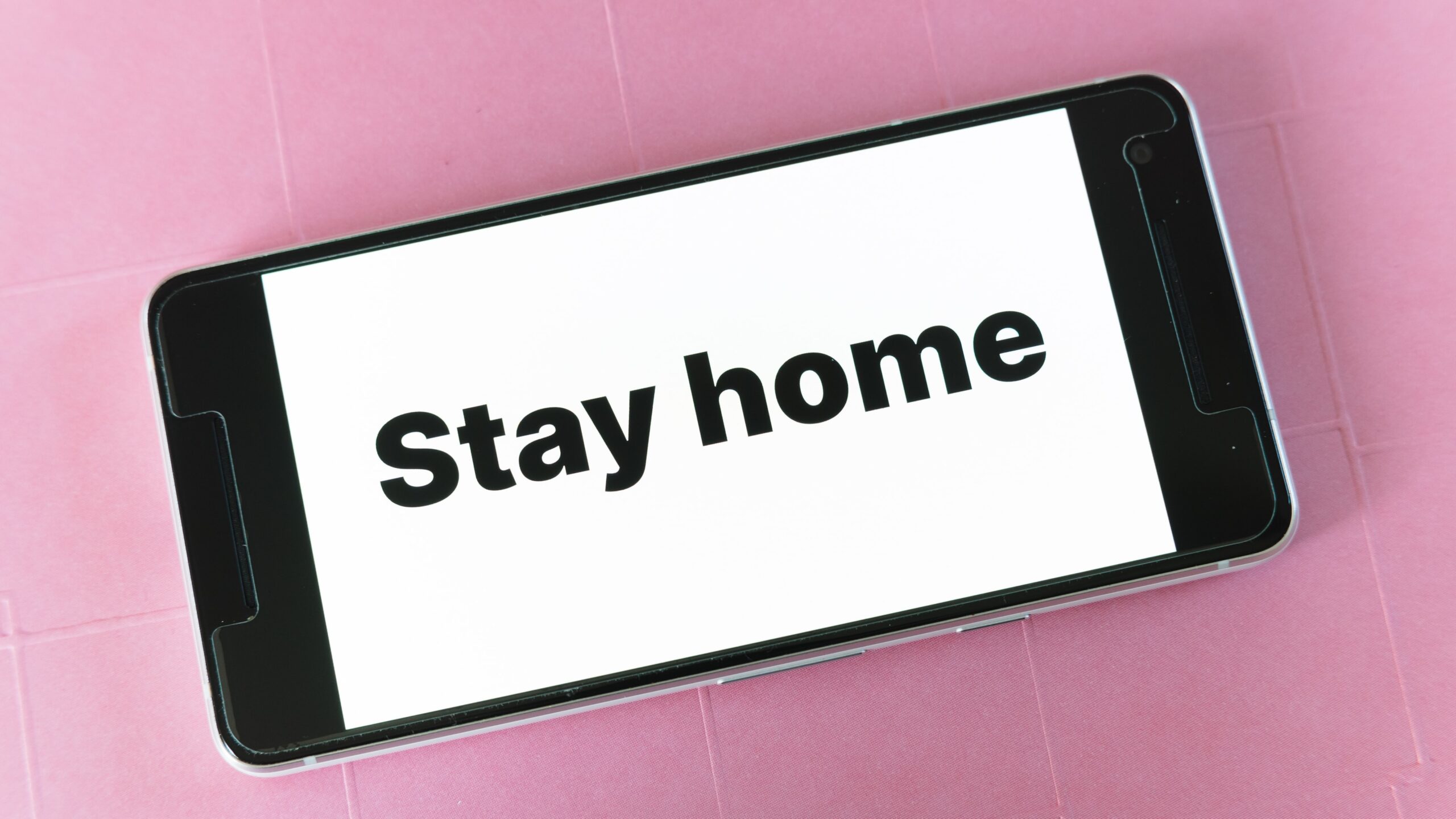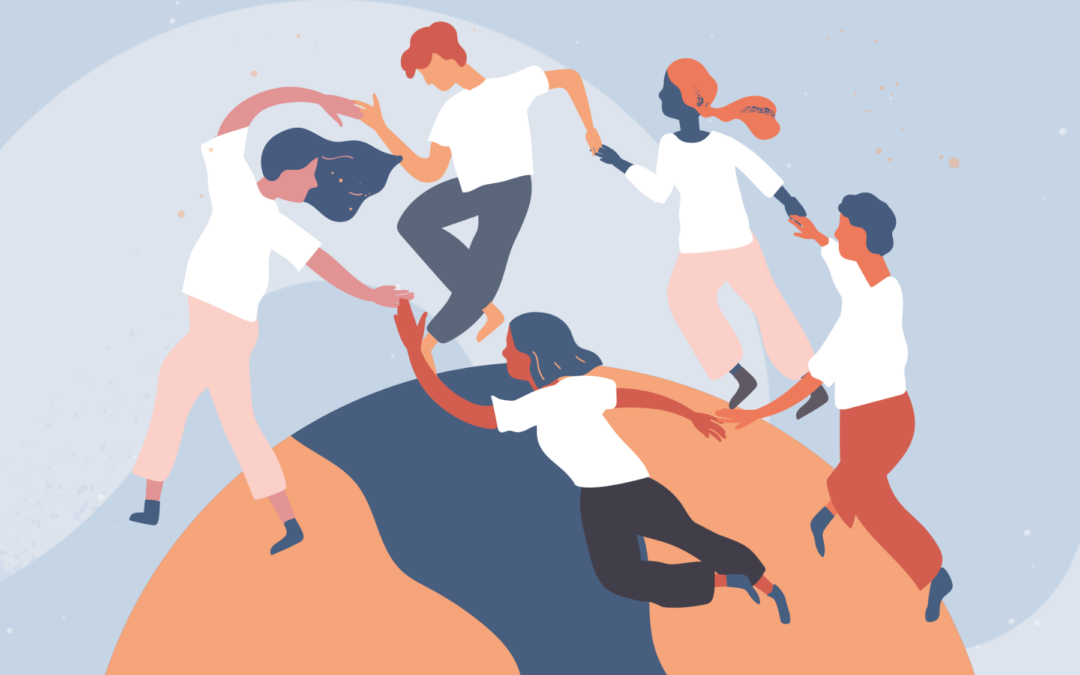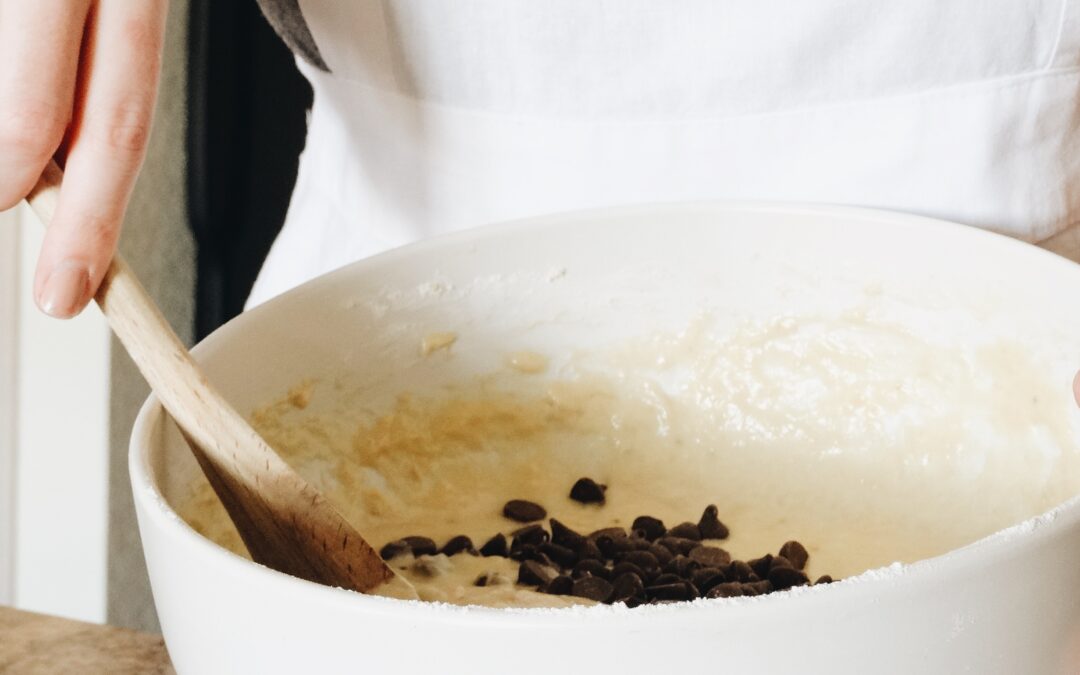Covid-19 saw an outpouring of community-led support in which 9 million ‘volunteers’ stepped forward to help out. As part of our Active Neighbours work, we’ve been interviewing people to uncover the stories behind the statistics. Here, we present Josie’s story.

Background
Josie joined the interview 30 minutes late having been side tracked by conversations with seemingly the whole village while out for her walk. Josie has lived in a village with her husband and son since 2003 when they purchased the house which used to adjoin the village shop (which is now closed). “When we bought the house we were opening our doors and privacy to the village and became indoctrinated very quickly”. She reckons she and her husband know at least half the people in the parish.
Josie was brought up in a community-oriented household and has been heavily involved in village life for many years, from setting up the annual scarecrow festival to sitting on school committees and supporting the Church.
She’s had a varied career, travelled extensively and feels fortunate and privileged to have lived the life she has.
Impact of lockdown on Josie’s life
Life before 2020 was full of shuttling her son around to different after school activities, working full-time from home as a sports therapist and beautician, doing the garden and entertaining friends. Her husband also works full time and her son attends the village primary school.
Due to the nature of her profession, Josie was unable to work over lockdown. She contacted her clients just before Boris’s announcement to say that, due to her concern for the safety of her clients and family, she was suspending treatments. She resumed over the summer period when she was busier than ever; clients seemingly preferring to come to her small practice over larger practices which perhaps felt less safe.
Attitudes to British Citizenship
Describing what it means to be a good citizen, Josie remarks:
“You treat everyone the way you’d like to be treated. There’s always another story and the truth is somewhere in the middle. You have to look at life as you reap what you sow. If you see something that’s unjust you should try to change it. I’d like to think I was a good citizen – we’ve always done the community work. You could say that this is on a selfish level – we benefit too – we see friends and have a good ‘do”.
Josie believes that lockdown has unlocked people’s willingness and desire to care – “It opened a lot of people’s eyes to their ability to care and help out”.
She’s effusive about the community that she lives in describing it as ‘phenomenal’ – something she knew prior to Covid from the community’s willingness to get involved in and support things like the scarecrow festival that she set up.
History of volunteering
Josie has been a central member of her parish community since she moved there. She describes herself as a ‘coordinator’; someone who nurtures and encourages the ‘strengths’ and ‘gifts’ in other people for the betterment of the community.
She sees it as her role to create and oversee the ‘platforms’ that enable other people to get involved and has a rich history of coordinating community events and fundraising activities. She describes her motivation as almost being selfish in that it gives her the opportunity to make new friends and ‘have a good ‘do’. She often puts her hand into her pocket to fund community events and says “ I’m so lucky to have these good friends around me to help me do this”.
Volunteering during Covid
Just before lockdown, Josie began to organise a community support group. She did a bit of research and saw something about mutual aid groups on Facebook. She discussed the idea with a few friends, posted about it on social media and created a flyer which we put in the parish magazine.
She got a group of 10 people together and, within a day, hand-delivered the flyer to 98 households within the parish. This was made easier by the fact that she knew where most people lived and where the boundaries of the parish lie.
Within a couple of days, 65 people had signed up to help out and were added to a WhatsApp group. To begin with, they had 4 or 5 requests for help each day. People in the support group were often quick to respond and Josie said she had to spend a couple of week ‘training’ everyone in how the support was meant to work – people often offered to make a trip to Asda for someone who requested it, but Josie’s view was that you should only offer if you were going anyway. She says, “We made it clear that no one should feel guilty if they couldn’t and could do as much as they wanted.”
“I just have to say that the food bank needs peanut butter, 12 hours later there will be 56 jars on my porch.”
Josie says the key to rallying support is in asking in the right way; explaining why you’re asking for this help and making sure a feedback loop is in place so people can see the difference they have made.
“People need to see some sort of progress, some sort of feedback. If you continually take all the time people will stop giving. You have to give something back, whether a gift, information, a building.”
The Whatsapp group soon became pretty ‘noisy’ (she describes it as full of community chitty chat) so she set up a separate group specifically for support requests (“we had to separate work from pleasure”).
Josie believes that the ‘community chitty chat chat’ Whatsapp group will be an enduring legacy of Covid. It gave people in the parish the opportunity to get to know new people, where they live and to create a community freebie economy.
She jokes, “we’re all going to have to walk around with badges saying who we are and where we live when this is all over!”. Whatsapp, Josie believes, is the perfect platform on which to coordinate community support. “It’s instantaneous. You can literally say there’s a fire in so and so barn and everyone gets it instantaneously – it’s almost like we’re in the same room.”
Josie also set up a buddying scheme where she asked selected volunteers to be a ‘buddy’ to elderly, isolated people in the parish. The buddy became that person’s volunteer; the person they asked for help from, and friendships soon started to blossom. She tells a story of one volunteer who helped their buddy get in contact with the council and secure a house in a nearby town having decided he couldn’t face another winter in his caravan. Josie believes that these relationships will sustain as they have now become habitual.
Josie believes that communities have always had a latent desire to support one another and that Covid was the excuse that unlocked that latent desire.
She stresses the importance of making it easy for people to get involved by setting up simple platforms – like Whatsapp – which make the need easy to understand and the response easy to coordinate.
“We need more community events so they can talk to people they wouldn’t usually talk to. Normally we come home, close our doors and that’s it. I think what we’ve seen is people leaving their doors open. We need to continue to talk and share what we’re struggling with. The channels need to be kept open for that communication.[…] [Covid] was an almighty stop. There are so many people that are natural doers – volunteering and helping others was possibly the only thing they could do. A lot of people potentially thought that was their only option to continue to do something. Covid gave everyone the opportunity to step slightly out of their comfort zone. Everyone needs that door to be slightly open to be able to step through.”
Looking to the future
She believes we need to maintain the simple platforms – like community WhatsApp groups. In the future, we should supplement them with more community events that give people the opportunity to get to know one another and each other’s needs in a more organic way.
When Covid is finally over Josie feels it’s really important we take a moment to celebrate the community response.
“I think we should have a huge big garden party when this is all over. This is why I really want to have the Christmas fair. We raised £750 from the Macmillan morning and I think this is because people just wanted to see each other. I think we need to mark as a community what we’ve achieved.”
Asked what would help her in the coordinating role that she plays, she says a small fund for community events. It wouldn’t matter where this money came from and the source would likely vary from place to place (perhaps local businesses) – the important thing, again, is about creating a simple platform to enable this giving. Josie would be confident to manage a small fund, having done something similar before, but notes the importance of small, transparent committees in helping create new ideas.
This story sits within our Active Neighbours work. To find out more about the different types of Covid volunteer, their motivations, experiences and needs, take a look at our Field Guide.
Read more

The Relational Neighbourhood
In brief Nick Sinclair and David Robinson have been mulling over a new blog for a while. It has been almost five years since their pandemic reflection on “the art of the covenant” (2020). A lot has changed since then but the underpinning principles of their thinking...

Active Neighbours – Sarah
“I got involved because it was something I could do – it was only small but I could do it around work. All the small things add up. If we can just brighten up someone’s day.”
